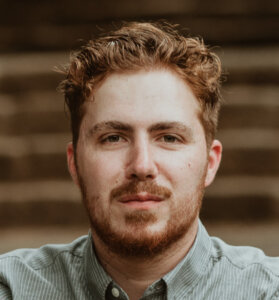‘No safety to be found’: Americans with family in Gaza watch and worry
Palestinian Americans say support for Gaza civilians is at an all-time low as Israeli airstrikes continue to pummel the enclave’s residents
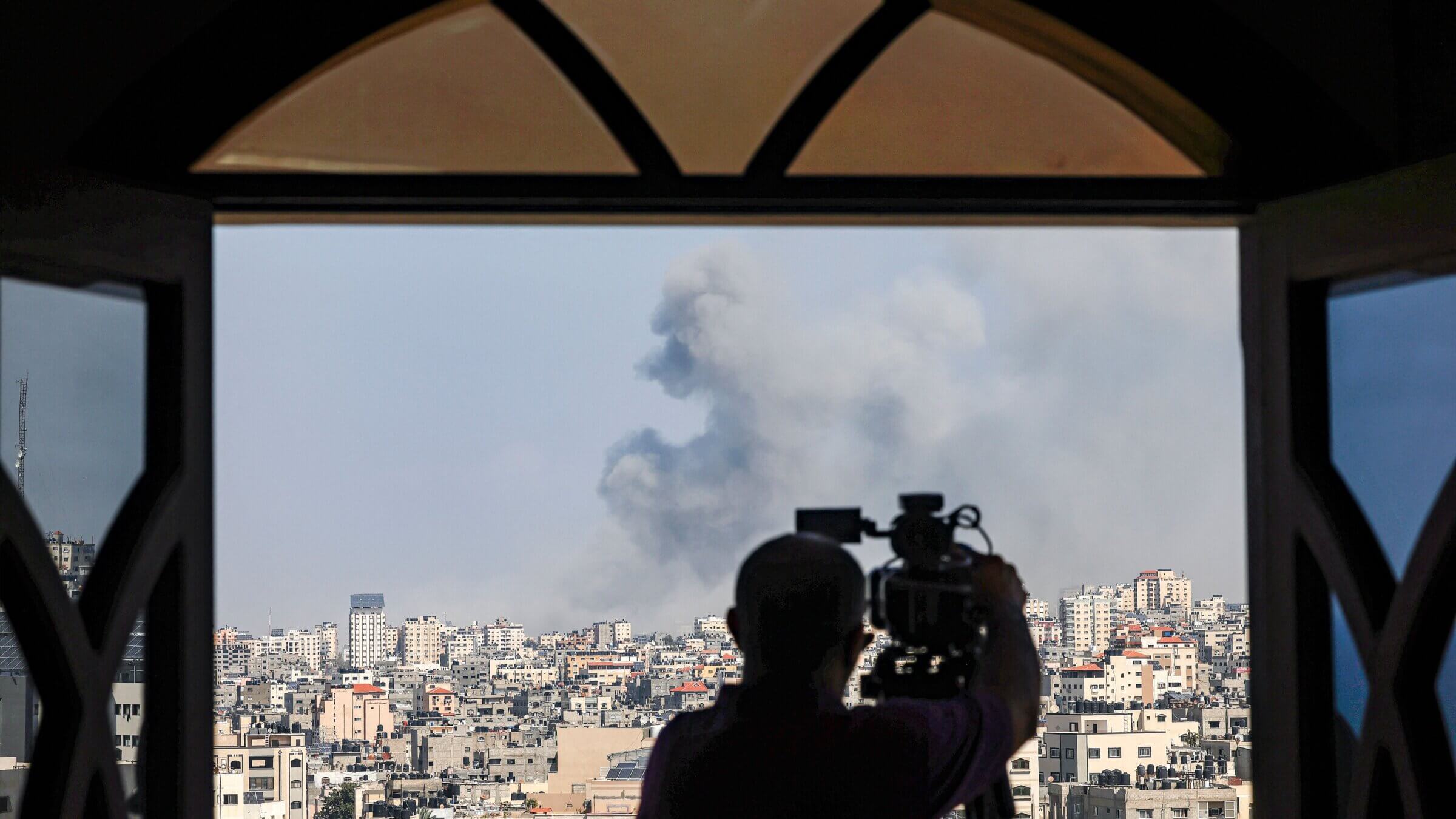
A cameraman films while smoke plumes billow during Israeli air strikes in Gaza City Thursday. Palestinian Americans are watching the conflict unfold with mounting dread, as the U.S. government has thrown its weight behind Israeli military action. Photo by Getty Images
As Israeli airstrikes bombard Gaza, Laila El-Haddad has been glued to her phone, thousands of miles away in suburban Maryland.
El-Haddad has been following local Palestinian media offering minute-by-minute updates on the violence to relay to her family, which is split between Gaza City in the northern part of the enclave and Khan Younis in the south.
She is communicating with them through two WhatsApp groups — one for each side of her family — although the sporadic access to electricity has made communication difficult.
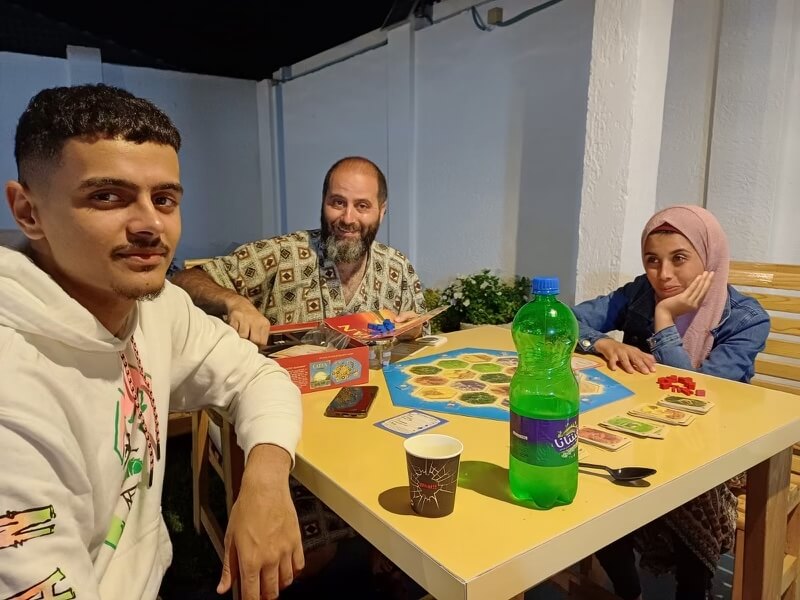
“The idea was before we go to sleep and when we wake up, ‘Tell us are you alive or not,’” she said in an interview Thursday. “I haven’t heard from my father’s side at all today so that’s a little worrying.”
As many American Jews remain focused on mourning the 1,300 Israelis killed in the attack by Hamas Saturday — and on crushing the terrorist organization’s infrastructure in Gaza — Palestinian Americans are wracked with fear for their families and frustration with the U.S. government, which is sending military aid to Israel.
Israeli forces have killed 1,800 Palestinians and left 400,000 homeless, according to local officials. The Israeli military told Palestinians living in the northern Gaza Strip, where more than 1 million people live, to evacuate south Friday.
‘No place to go’
Hani Almadhoun moved to Utah from Gaza more than two decades ago to attend college, and said he’s been fielding messages from friends in the region with their last rites and requests for forgiveness in preparation for death.
He received word from his family Friday that his parents and six siblings were sheltering in a stairwell in a house near Gaza City, a short walk from where his father runs a small grocery store.
They are in an area that is subject to the military’s evacuation order. But Almadhoun said they have no family or anywhere to stay in southern Gaza.
“They have no place to go,” he said. “They just want to stay together — or die together.”
‘Feels like Israel was given carte blanche’
While many Palestinian Americans have long been frustrated with their government’s approach to the Israeli-Palestinian conflict, feeling that it has been biased in favor of Israel, they said that imbalance feels especially extreme following the Hamas attack on Israeli civilians.
President Joe Biden has spoken with Israeli Prime Minister Benjamin Netanyahu three times since Saturday, and in a speech earlier this week he said, “We stand with Israel. And we will make sure Israel has what it needs to take care of its citizens, defend itself, and respond to this attack.”
Hamas militants massacred an estimated 200 Israelis at a music festival near the Gaza border, and rampaged through nearly two dozen towns in southern Israel killing scores — including at least several children — burning homes and kidnapping at least 100 Israelis, most of whom are still unaccounted for.
It was the most serious terrorist attack in the history of the country.
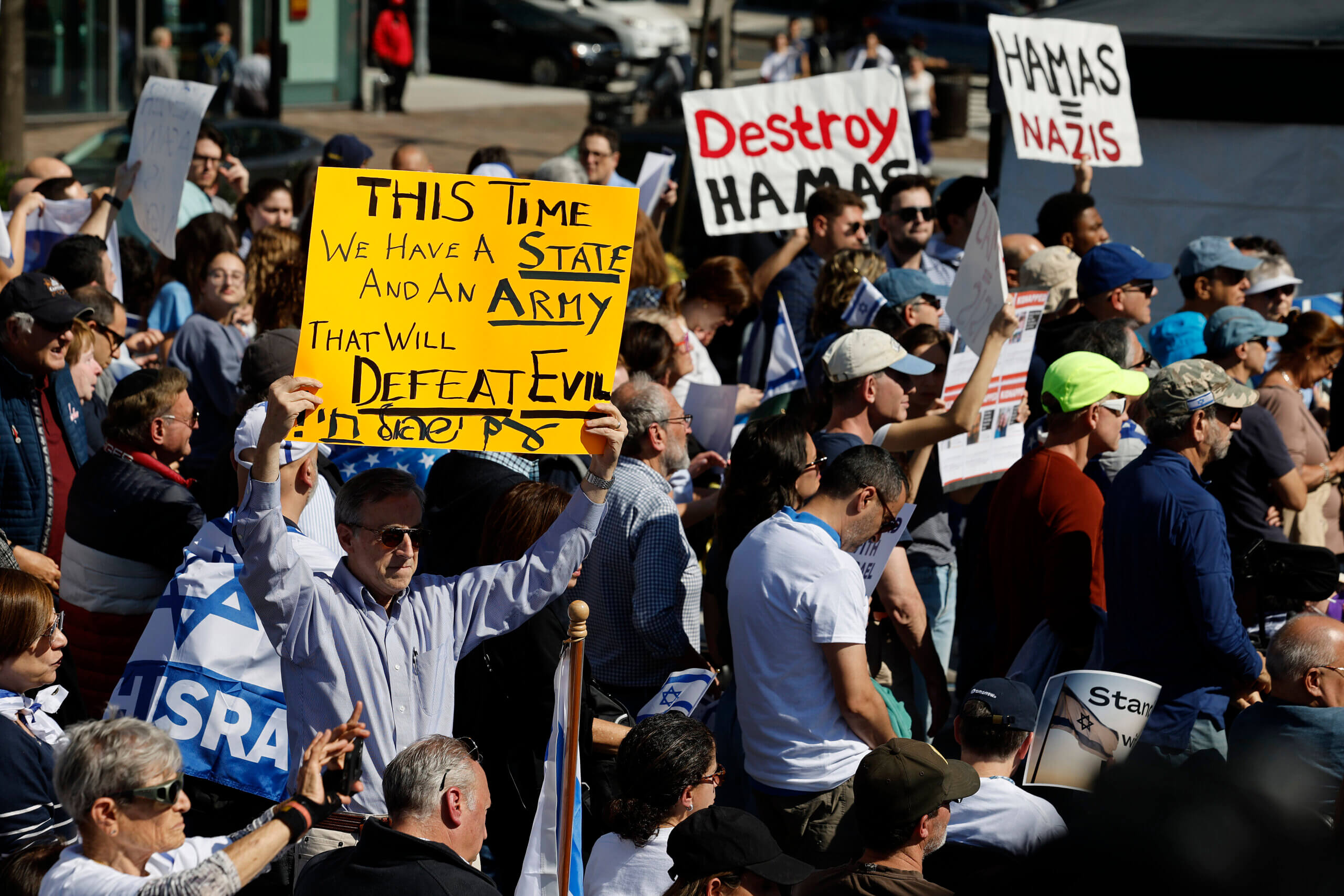
But in addition to the documented atrocities, many Palestinians and their supporters have drawn attention to the repetition of unverified claims about Hamas beheading babies and raping women during the attack by American officials. Biden initially told a group of Jewish leaders that he’d seen verified photos of decapitated babies, before a White House spokesperson clarified that he was referring to media reports.
On Thursday, two days after Biden spoke, the Israeli government released photographs of murdered civilians, including babies, although they did not include images of decapitated children, according to Reuters.
Dorgham Abusalim, a communications professional in Washington, D.C., said he believed these reports were meant to dehumanize Palestinians as Israel shuts off food, water and fuel to Gaza and continues its aerial bombardment.
“I think that was a conscious choice to validate and condition the public for what might be coming,” said Abusalim, whose blind mother and a paralyzed father are in Gaza. “That’s why I’m terrified for my family — it feels like Israel was given carte blanche to commit atrocities.”
‘No safety’ in Gaza
Israel has said it is seeking to destroy Hamas and pressure the terrorist group to free dozens of hostages kidnapped Saturday. Military officials said they were aiming only at legitimate targets but acknowledged they had abandoned the doctrine of “surgical” strikes used to limit civilian casualties in past Gaza conflicts.
Abusalim said that friends had been asking whether his family, including two adult siblings who are with his parents, had been able to protect themselves during the airstrikes.
“I wish I could say that taking measures to stay safe is something that is applicable here,” he said. “The reality is there is no safety to be found anywhere in the Gaza Strip.”
In announcing the “complete siege” of Gaza Monday Yoav Gallant, Israel’s defense minister, said, “We are fighting human animals and we are acting accordingly.”
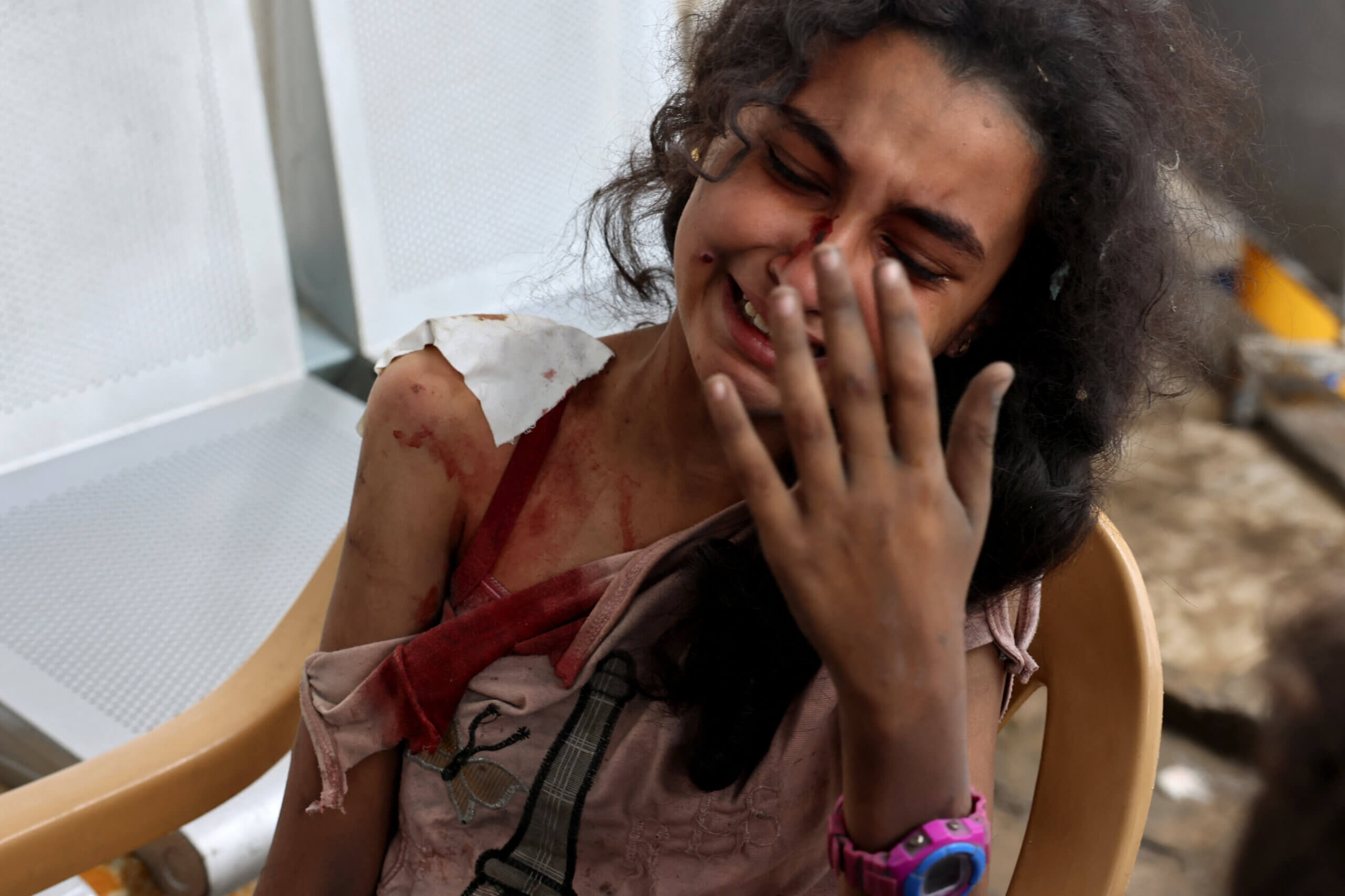
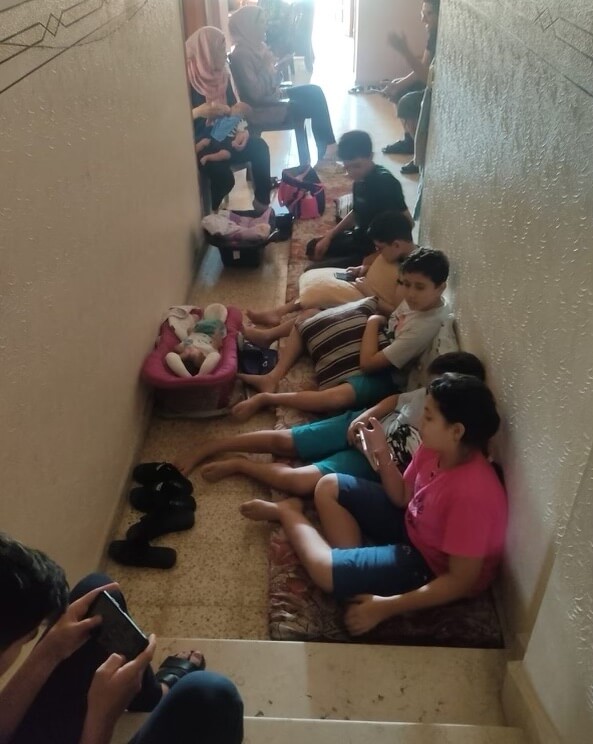
Gaza health officials said that 583 children were among the 1,799 Palestinians killed so far.
El-Haddad, an author and journalist, felt that was an open admission that Israel intended to commit war crimes if not genocide — “to reduce Gaza to rubble,” she said.
“To have that, and then have our government here stand up and say, ‘You have our full support, bravo, do what you need to do,’ was pretty jaw dropping,” said El-Haddad, author of The Gaza Kitchen: A Palestinian Culinary Journey.
“And I thought I’d seen it all.”
A blind eye?
The State Department said this week that it was seeking to negotiate safe passage for American and other foreign citizens in Gaza. An official declined to tell reporters whether the U.S. supported Israel’s call for a mass evacuation of northern Gaza.
Abusalim said that he mourned the loss of all civilian life in the violence but that he feels like Saturday’s attack might have been prevented if Israel and the international community had worked to lift the blockade on Gaza and create “a modicum of a political horizon for the question of Palestine.”
“If the world hadn’t simply chosen to turn a blind eye to it we would have been in a different scenario altogether,” he said. “I just wish for safety for everyone and hopefully we will see better days.”



